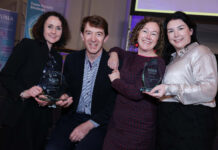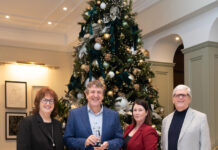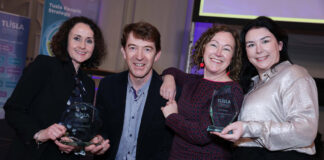
In a collective effort to address and mitigate the impact of food waste within the tourism sector, Visit Cork, in collaboration with Cork County Council and Cork City Council, proudly hosted the ‘Waste Not, Want Not’ conference last Wednesday.
The event, attended by over 200 delegates, responded to the alarming statistic that more than one-quarter of the global food production is wasted, contributing significantly to climate change, with food loss and waste responsible for 8-10% of greenhouse gas emissions.
This initiative brought together stakeholders from the tourism and hospitality industry to share insights, expertise, and practical solutions for managing and reducing waste. Taking place at the newly established state-of-the-art Education, Conservation and Research Centre in Fota Wildlife Park, the half-day event featured a comprehensive review of Visit Cork’s plans and aspirations for the sector in 2024.
Expert speakers presented valuable insights and practical advice on available resources to assist businesses in effectively monitoring and managing waste. Kenneth Lyons, co-host of ‘The Green Room’ radio show on sustainability, with a background in the hotel industry, was the conference MC.
FOOD WASTE – ‘AVOIDABLE’
Head of Visit Cork, Seamus Heaney, said: “The EPA estimates that Ireland generated 753,000 tonnes of food waste in 2021, with restaurants and food services generating approximately 189,000 tonnes (25% of total). This level of food waste is completely unnecessary and is avoidable through good food and waste management practices.
“In addition, the ‘Reducing Commercial Food Waste in Ireland’ report published in 2019, found that over 66% of food waste from the food services sector is avoidable. It found that hotels have the highest level of food waste and the annual cost of food waste to this sector is estimated to be in excess of €300 million. It is so important for the sector to realise that managing food waste is not only the right thing to do, but should also result in a cost saving.
Our conference helped the tourism and hospitality industry to share ideas and learn from others who have successfully reduced their food waste,” he said.
MYWASTE.IE
The event was supported by funding from the Regional Waste Management Planning Offices’ “Green Hubs” Fund.
Businesses are encouraged to visit Mywaste.ie website for resources on how to make changes and to learn more about their obligations under national waste management legislation.







